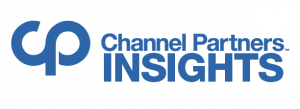Don't go without a plan of attack.
April 2, 2019


Paul Cronin
By Paul Cronin, Apogee IT Services
I spent some time on the plane back from an awesome conference in Chicago reflecting on my interactions with thought leaders, networking with my peers and meeting with a few new vendor contacts.
 It’s that time of year, from February through May, when there’s week after week of industry and vendor conferences. They cover the country and, after attending a few, the hotels all look and feel the same. The days are long, the nights are late and if you aren’t careful, you’re sure to put on a lot of weight.
It’s that time of year, from February through May, when there’s week after week of industry and vendor conferences. They cover the country and, after attending a few, the hotels all look and feel the same. The days are long, the nights are late and if you aren’t careful, you’re sure to put on a lot of weight.
This year started off with NSCA’s Business Leadership Conference followed by CompTIA’s Community Event. Next is the Channel Partners Conference & Expo scheduled for April 9-12 in Las Vegas. All of these conferences are in addition to vendor events. For most of them I participate as a board director, presenter, panel moderator or panelist, which takes commitment but also brings a sense of reward. I’m fortunate that all of them are great events and I get a lot of value from them.
The question I often get asked by people is why do I participate in these conferences? Why do I take time away from my family, staff and clients and give myself twice as much work when I return? Is there a tangible return on the time, costs of travel and the conference fees?
The question is a good one. I thought about my past conferences and my peer’s responses when I asked them a similar question. I also thought about why I’m headed back to my eighth Channel Partners event on April 9th in Las Vegas.
The answer for me and most of the other people I asked was that the opportunity to benefit was far greater than the investment to attend. In fact, most I asked said their only regrets were that they hadn’t brought other team members with them or spent more time planning their conference schedule. This led me to conclude that the path to maximizing a great return on the investment of time and money to attend a conference is all about planning your outcome. If you do that, there’s no question that you will be way ahead for attending.
For me it has always been about being invested and planning what vendor I wanted to meet, what industry speaker I wanted to hear from and what educational sessions I thought would most benefit my company.
The people I interviewed shared some insights …
… worth passing along:
Ryan, the leader of a professional services group at an IT integrator, found a conference enlightening; he had learned a lot related to new technologies and was eager to get back and share. In fact, he planned to do presentations to the other engineers and his senior leadership on what he had learned. He had already marked his date on the calendar for next year and spoke to some of his team about attending with him. He also was looking for a cloud conference as another way of expanding his thinking.
Rick, the CEO of an MSP, attends four industry events a year. For him, conferences were the only time he engaged with vendors. He rotated who he brought with him, which typically was his management staff. He found that meeting with his vendor executives at one place saved him a lot of time and additional expense. He also found it a valuable place to get cutting-edge industry insight about trends in business and technology. Rick said he always came back with two new vendors that he wanted to explore relationships with.
Jeff, who I had also seen at the CompTIA event and who was a regular at the Channel Partner conference, said conferences were a great place to connect with his agents, to spend time with them while learning, sharing and having fun. He knew the leading-edge content would force him and his agents to have conversations about where they were going instead of where they were today. He also introduced his agents to some of his suppliers and got them to share their road maps as well as dinner. His agents considered him strategic and not just an average supplier.
Lisa, a business owner, normally attends conferences with a diverse group from her company. She considers conferences career development and uses the time to bond with her team and engage them in learning. Lisa believes that at conferences her team puts aside everyday thinking and exercises outsight, that fresh perspective you can get when you learn and do different things. She has each team member plan out their day and divide up their time to cover as many conference sessions as possible. They met at night to review what they had learned. The team always came back energized to explore new technologies and willing to share their insight. Her team spoke about the conferences for months and credited her for helping them to embrace change. She called it her halo effect.
Anthony, a salesperson from a manufacturer, indicated that each year he takes his top six partners to the Channel Partners conference. He planned the entire four days, from morning until night, with the intent of making it a productive use of time. It was fun, it gave them a chance to engage with their peers and exposed them to some great industry education that provided personal and professional value. Anthony also shared that when he got back he witnessed a higher level of partner engagement and he consistently saw their business expand over the following six months. Some partners learned what Anthony was doing for his top partners and worked hard to elevate their relationship, so that they could be invited the following year.
I found what Anthony was doing very interesting. In his concierge approach he had found a way to build some partner loyalty while providing value and earning revenue from his investment in time. He understood that educating his clients was investing in their success and that he was building loyalty. He also knew that by bringing different partners together he was enabling them to grow from sharing experiences with each other. He acknowledges that he could never provide the level of education they received on his own. Although he paid for their conference admission and travel, he indicated that he …
… received back 20 times his investment in new business within six months.
Those who shared their insights about why they attend conferences all had a plan. Others indicated that it was a place to meet peers, gather collateral, check out the venue and expand their industry awareness. These components are all part of a conference experience, but there needs to be something a lot more concrete related to preparation and outcomes. Here are a few suggestions to maximize your investment and get the most out of conferences.
How to Maximize Your Investment
Research who this event is meant for and who will get the most out of it before registering. Just because they went last year doesn’t mean they should go again. Also, you may want to give up your seat so someone else can attend.
Consider selecting individuals who align with the content of the event and who could also grow professionally and personally by attending it. Sending multiple people is often more beneficial than sending one person.
Download the conference app to schedule the sessions and get socially connected in advance of the event. Book one-on-one meetings in advance. If more than one person is attending, divide and conquer.
Plan the event a month in advance of attending by picking the sessions, vendors and the people you want to engage with and send them calendar invites.
Meet with stakeholders at your company who could benefit from the event but can’t attend. Find out how you can help them while you are at the event by meeting with vendors and gathering collateral.
Require whoever is attending the conference to create a written plan identifying what value they expect to receive from the event and post a summary of their findings.
Require the attendees to share the information that they received at the event and follow up with a presentation to staff to share what was learned and how it relates to the organization.
If you’re a vendor and the audience is largely solution providers and agents, consider bringing them with you and help them plan so they get the most out of their attendance.
If the value of a conference aligns to a specific person, consider including the attendance as part of an employee’s career development and compensation plan.
Seek out opportunities to be interviewed by online media or through print to elevate your industry presence.
Use social media to chronicle your activities and relay what you’re learning. Post it through LinkedIn, Instagram, Facebook and tweets via Twitter.
Look for opportunities to increase your industry presence by participating as a thought leader in one the conference sessions.
If you can’t attend a conference live, view the content being streamed throughout the conference.
Take advantage of early and late registration pricing discounts.
One of the biggest benefits I find is attending the educational sessions. There’s a lot of great content delivered by renowned speakers and also by leaders of companies similar to many of those attending. I feel there’s a great opportunity to not only attend a conference but to also participate as a panelist or moderator. This can be strategic by helping to eliminate the cost to attend and expanding you and your company’s presence in the industry.
Please connect with me on LinkedIn. I hope to see you at Channel Partners in April — it’s going to be an amazing event with a great return on investment. When we meet I would like to hear about your conference experience.
Paul Cronin is the CEO of Apogee IT Services and is on the board of directors of CompTIA’s IT Careers Foundation. He’s also a member of the Channel Partners Editorial Advisory Board.
Read more about:
AgentsYou May Also Like
